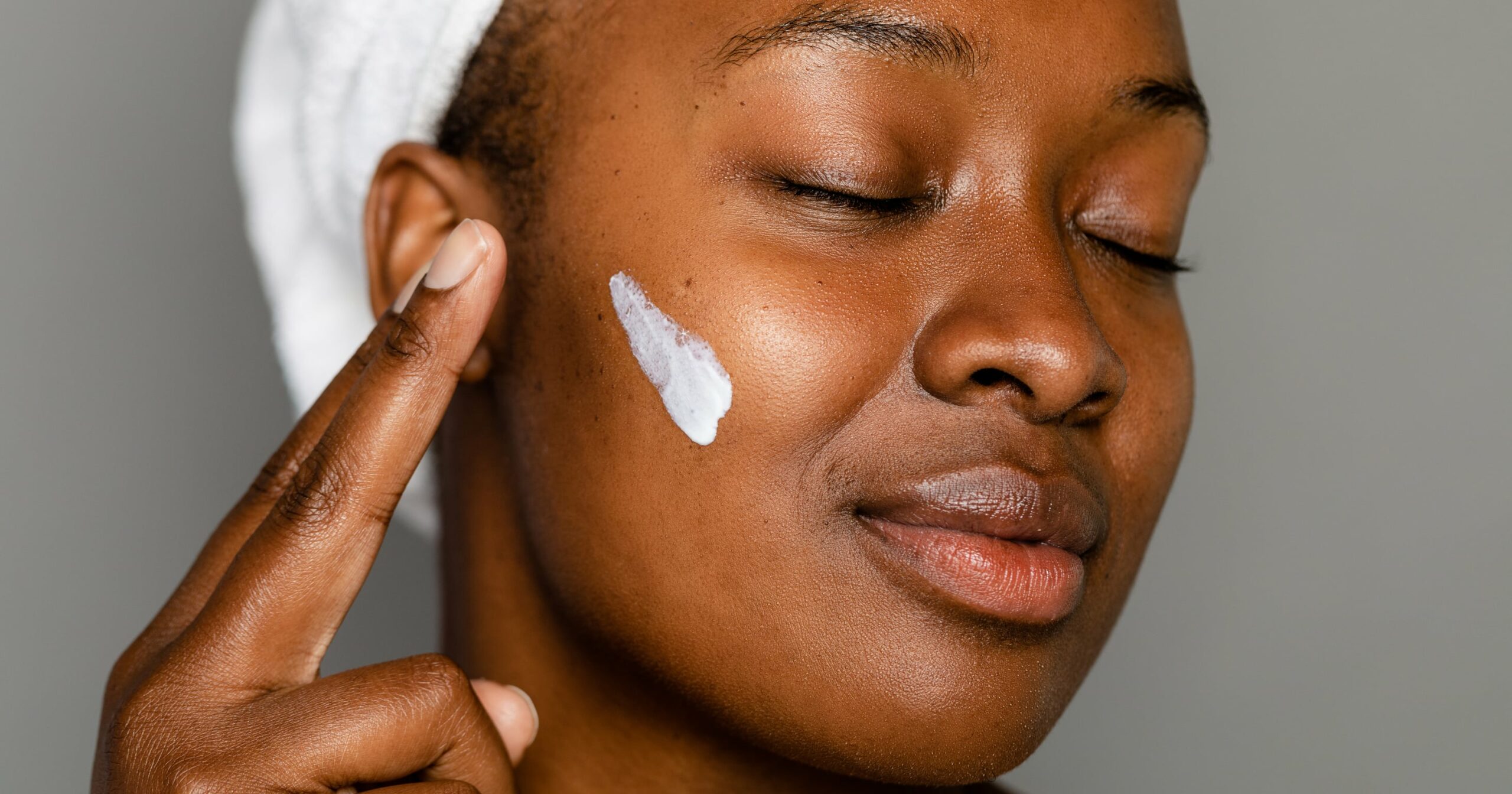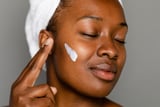In a perfect world, life would be as easy as dabbing on concealer, smearing on some highlighter, and leaving the house with flawless skin every day. But that isn’t the reality for many people who experience hyperpigmentation, especially hyperpigmentation on Black skin. Hyperpigmentation on Black skin is extremely common and causes the affected area to darken because of an increase in melanin production. Hyperpigmentation can be particularly prevalent if you’ve dealt with acne or breakouts – they’re the little dark marks that are left behind when the pimple goes away.
Even with that, hyperpigmentation on Black skin can be complex. It can occur in unexpected areas of the body – even if you didn’t have a breakout in that location. There are also different types of hyperpigmentation that can stem from a myriad of causes. As a result, hyperpigmentation treatment for Black skin is never a one-size-fits-all experience.
To help cut through the noise, we enlisted the help of dermatologist Michelle Henry, MD, to help break down everything from how to properly address the condition to the best hyperpigmentation products you should shop for. Whether you’re looking for a new skin-care routine to try or the reason you’re experiencing dark spots in the first place, don’t fret: a brighter future is ahead.
Experts Featured in This Article
Michelle Henry, MD, FAAD, is a Mount Sinai/Harvard trained cosmetic dermatologist and MOHS surgeon based in New York.
What Is Hyperpigmentation?
While hyperpigmentation is common, not all dark spots are created equal. Dr. Henry tells PS there are two main types of it that appear in skin of color: post-inflammatory erythema (aka PIE, which manifests as redness from inflammation by trauma to the skin, like damaged capillaries or blood vessels) and post-inflammatory hyperpigmentation (aka PIH, the dark pigment that comes from inflammation from a pimple).
“The key to knowing which one it is depends on the color of the mark,” she says. “You can very well have both. It is harder to see PIE on dark skin than PIH. If your complexion is very light, you might have some redness, but you’re likely also going to have some hyperpigmentation due to the overproduction of melanin in African American skin.”
Hyperpigmentation Causes
How did those tiny dark spots end up on your face in the first place? Well, acne is a major culprit that usually leaves marks behind. You also increase the chances of dark scars on your skin if you pick at your pimple. Dr. Henry says picking and squeezing causes inflammation and blood production at the breakout site, which often leads to bruising that turns into a brown scar.
As hard as it might be to leave your pimples alone, try to refrain from picking at them and creating more scars. Be sure to also shield your skin with SPF daily, as lack of proper sun protection can also worsen existing dark spots.
Hyperpigmentation Treatment
Despite all the trendy products on the market, Dr. Henry stresses the importance of simplifying your skin-care routine. The hyperpigmentation treatment for dark skin doesn’t have to be complicated. “Simple is better when it comes to treating hyperpigmentation because you don’t want to make your condition worse,” she says. Pick a regimen, or consult your dermatologist for the best results.
As for ingredients that fade dark spots, retinol is high up on Dr. Henry’s list of favorites. “It helps unblock pores and fights acne, which will result in the development of fewer new spots,” she says. “It’s also anti-inflammatory and will help lighten dark spots in brown skin.
Dr. Henry gave some hyperpigmentation product recommendations ahead.




